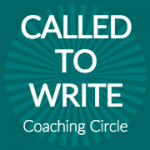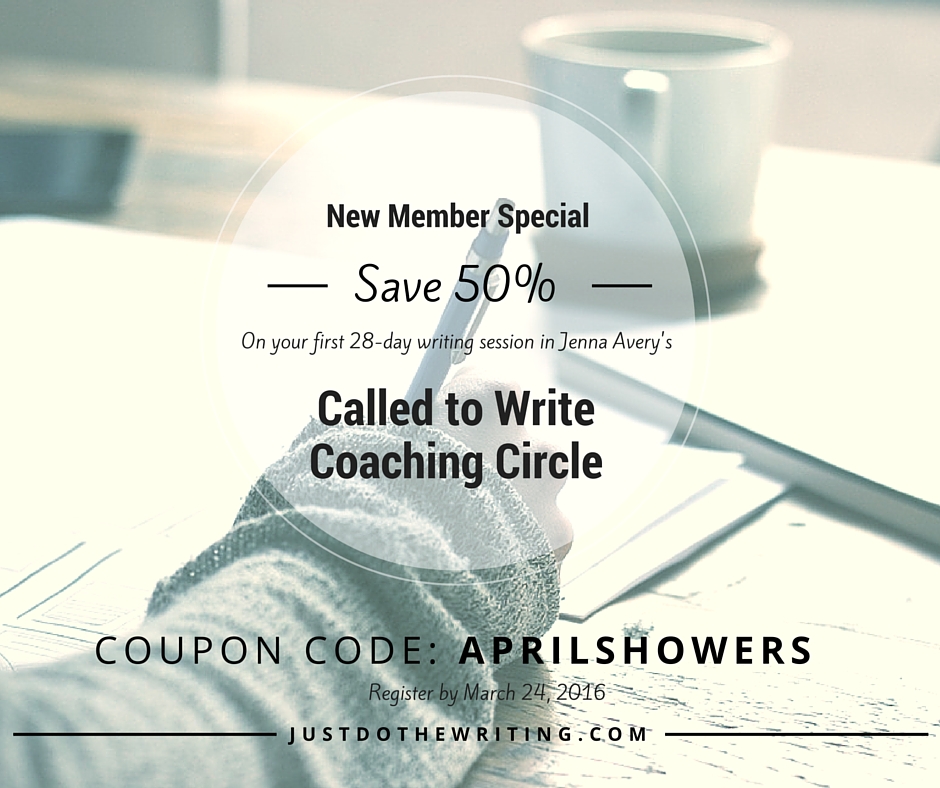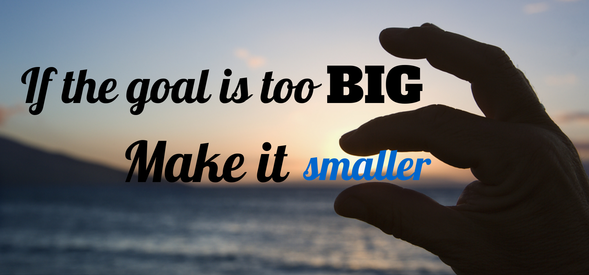There’s this idea floating around that the way to find time to write is to cram writing time into every square inch of your life. Just write while you’re waiting for your dentist appointment! Just write while you’re standing in line at the grocery store!
I don’t think that’s sound advice.
The thing is, we already lead crazy, busy lives. Most of us have plates filled to overflowing as it stands, and cramming writing into every tiny pocket of time feels like it will be the thing that finally breaks the dam.
Writing like a maniac looks like a recipe for burnout and stress to me, rather than a graceful fulfilling of one’s true calling. I don’t know where we got this idea that productivity and just doing more are the same thing. Many proponents of the just find 15-minutes method of writing seem to have bought into this idea.
Having said that, I do advocate writing in 15-minute (or smaller) blocks of time in the following circumstances:
- When that’s all the time you actually, truly have to write. Look, I’m a writer, a mom, and a business owner, I get it. There really is only so much time to go around. It’s okay with me if you say, I have to write, this is what I have, so I’m going to make the most of it. But, and this is important: Ideally, you’ll do it in a scheduled, planned part of your day, not as something you race to cram in during a stolen moment somewhere. I wrote a script in 15-minute increments of time, and I’ve got two writers in my Called to Write Coaching Circle who recently finished projects in 15-minute chunks: one mom who wrote her first novel and the other a coach who wrote her parenting book. It’s a perfectly valid way to write!
- When you’re building a writing habit. When you’re first setting out to build a writing habit, it pays to start small. Most of us with big dreams to write have commensurately-sized fears that stop us in our tracks and have us come up with all kinds of excuses not to write. Writing in small increments of time helps us sneak past the fear, kick the excuses to the curb, and get our butts in our writing chairs. There’s nothing that says you have STICK WITH 15-minute increments of writing time in the long term, it’s perfectly fine to build up to more once you’ve increased your tolerance for writing (in other words, once the blue meanies stop screaming quite so loudly in your head). Having said that, again, see #1. If that’s what you’ve got, work it, baby.
- When you’re re-building a writing habit. If you’ve fallen off the writing wagon, for whatever reason (travel, illness, loss, etc.), you can reboot yourself with a 15-minute writing sprint. If I ever find myself off track with my writing, I usually say something to myself like, “I can at least write for just 15 minutes.” And then I set my timer, and I’m off. Note that I usually don’t write past the 15-minute mark on a reboot day but just use that to get myself into motion again. I’ll often write longer the next day and build back up from there. (The reason not to go past the goal is that you end on a high note and in a positive place for the next day.)
- When you actually feel like writing while you’re waiting for something. Rather than feeling like you “should” be writing at every moment, notice when you want to be writing. Lately, as a tired mom of a now 23-month-old toddler, sitting and staring at nothing while waiting in the doctor’s office is a luxury I’m reluctant to give up for just about anything. But pre-baby #2, I happily wrote while hanging out waiting for appointments because I wanted to. In other words, do it if you want to, not because you “should.”
Your writing is your biggest dream. Treat that dream with reverence.
Rather than squeezing writing into the interstices of your life, take a look at its importance to you and give it a proper place in your day. This might mean taking a good hard look at the way you’re prioritizing your time and what you’re choosing to do with it instead of writing, and it might mean getting creative about how you’re scheduling yourself, but I’d much rather see you having moments to breathe AND moments to write.
Let me know what you think.
Coming Up
 The May session of the Called to Write Coaching Circle starts on Monday, April 25th and the last day to register and join us is Thursday, April 21 by 11:59 p.m. Pacific Time. Find out more and register here: http://JustDoTheWriting.com.
The May session of the Called to Write Coaching Circle starts on Monday, April 25th and the last day to register and join us is Thursday, April 21 by 11:59 p.m. Pacific Time. Find out more and register here: http://JustDoTheWriting.com.
 I’m leading a one-week intensive called “Fitting Writing Into Your Life: Becoming a Productive Screenwriter” at Screenwriter’s University starting on April 28th and running for 7 days. It’s a three-part online recorded video presentation from me and plus online discussions, interaction, and support from me. Find out more and register here. *
I’m leading a one-week intensive called “Fitting Writing Into Your Life: Becoming a Productive Screenwriter” at Screenwriter’s University starting on April 28th and running for 7 days. It’s a three-part online recorded video presentation from me and plus online discussions, interaction, and support from me. Find out more and register here. *
* This is an affiliate link, which means I’ll earn an extra commission in addition to my teacher’s pay, if you register through me.













